Second Journal of Science
| About | Current issue | Past issues | Publish | Peer reviewers | Editors | Editorial board | Contribute |
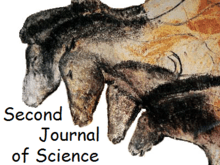 |
Author: Guy vandegrift (For demonstration only: Not a peer reviewed article)
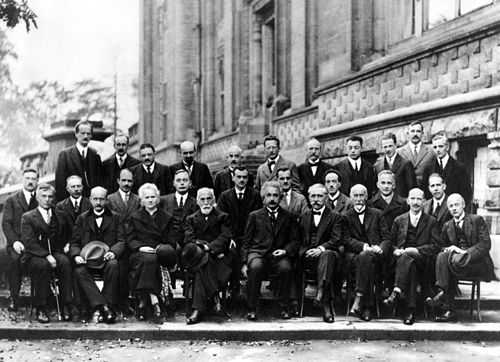
Wikiversity's policy of permitting forking into two slightly different articles has led to two slightly different version. In October 2014, an editor rendered it too advanced for its intended use by adding this section to the other version (i.e., the one not posted here). As is common on Wikiversity, the project was forked into two parallel pages (at present, neither version is ready to be accepted by this journal)
Also, this practice of routinely forking articles and accepting student submissions in mainspace makes Wikiversity an ideal host for journals like this and Wikiversity Journal of Medicine. To a limited degree, POV is tolerated here.
Full article:
wiki (editable) | PDF format (checked)
Authors: The parent article editors. Submitted to community review.

This Wikipedia article seems to have more focus than most. It also demonstrates how articles can be included in this journal without the permission or even knowledge of its authors, so that we effectively already have 5 million submitted manuscripts!. The version "accepted" by this journal features the journal's logo and link to this abstract, which was added and then immediately removed.
Authors: edited by Guy vandegrift and the parent article editors (Under review).
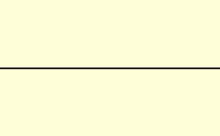
Many Wikipedia articles are of good quality but are almost never designed for a specific college course. This abridged version was created by placing a copy of the Wikipedia:Timeline of quantum mechanics into a user's subpage and reducing it to 50% of its original length.
- Note to reader: The image in the previous abstract depicts a wave that only superficially resembles the waves of quantum mechanics. The real part of a solution to Schrödinger's equation is depicted to the right and also exhibits partial transmission and reflection.
Author: Guy vandegrift (For demonstration only: Not a peer reviewed article)
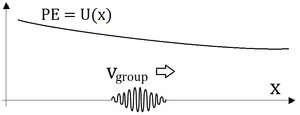
When did Modern Physics begin? In 1834 Hamilton could have derived the Schrödinger equation if he had any experimental evidence that particles were also waves. The word "eikonal" comes from an ancient Greek word that we know as "icon", which means "image". Hamilton was working on optics when made this approximation in an attempt to model the behavior of light as it passes through a medium in which the index of refraction varies smoothly. This is an alternate derivation of what physics majors know as the Ehrenfest theorem, restricted to one-dimension so that a very simple proof can be constructed.
Authors: parent article editors (Pending final review).
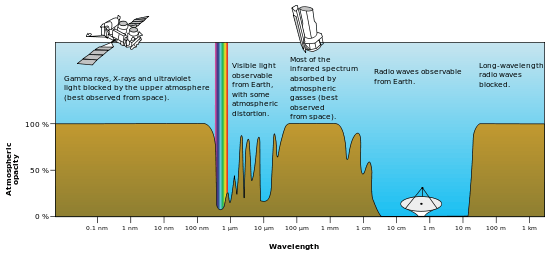
This unusually focused Wikipedia article emphasizes optical and radio spectroscopy. It shows how the temperature, chemical composition, and motion are deduced for stars and interstellar nebulae, galaxies, as well as objects within our solar system.